London Design Biennale 2018: 10 interactive installations to look out for
London Design Biennale (4-23 September) returns for its second iteration, this year exploring the theme of ‘emotional states'. ‘It’s a gathering like the World Cup,' says Sir John Sorrell of the 40 countries, cities and territories that are taking part in the event at cultural hub Somerset House. Following its 2016 inauguration, the project has expanded covering every continent except Antarctica, and the works explore issues from sustainability to pollution in the form of immersive installations. Here we look at the 10 most innovative designs to keep an eye out for...
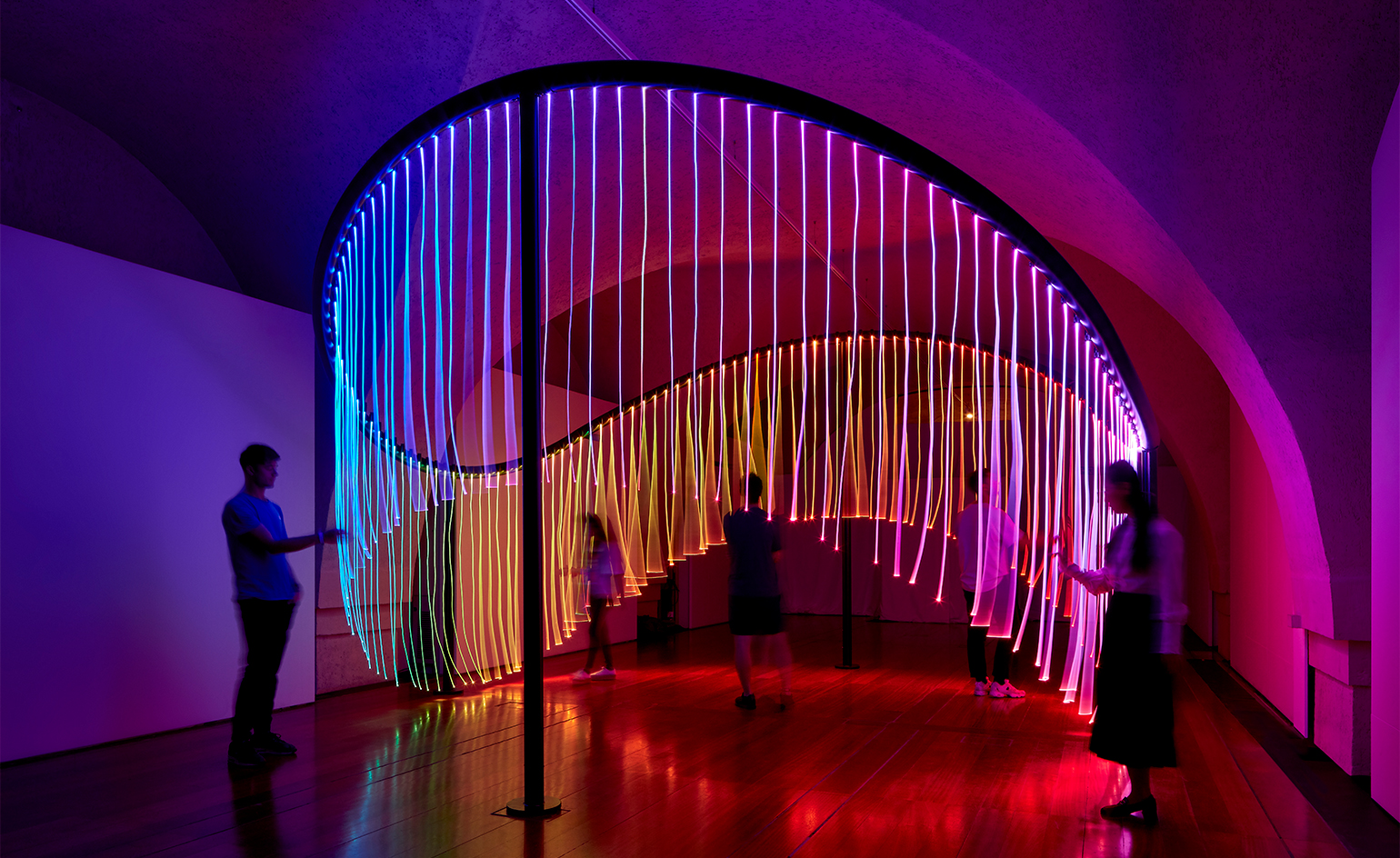
Full Spectrum
Country: Australia
Designer: Flynn Talbot
Following Talbot’s immersive light installation at the V&A Museum during London Design Festival last year, the designer returns with another technicolour experience, this time encapsulating the happiness surrounding the recent Australian same-sex marriage legislation. Made up of 150 hanging optic fibre strands, the installation produces an interactive rainbow that visitors can meander through and engage with.
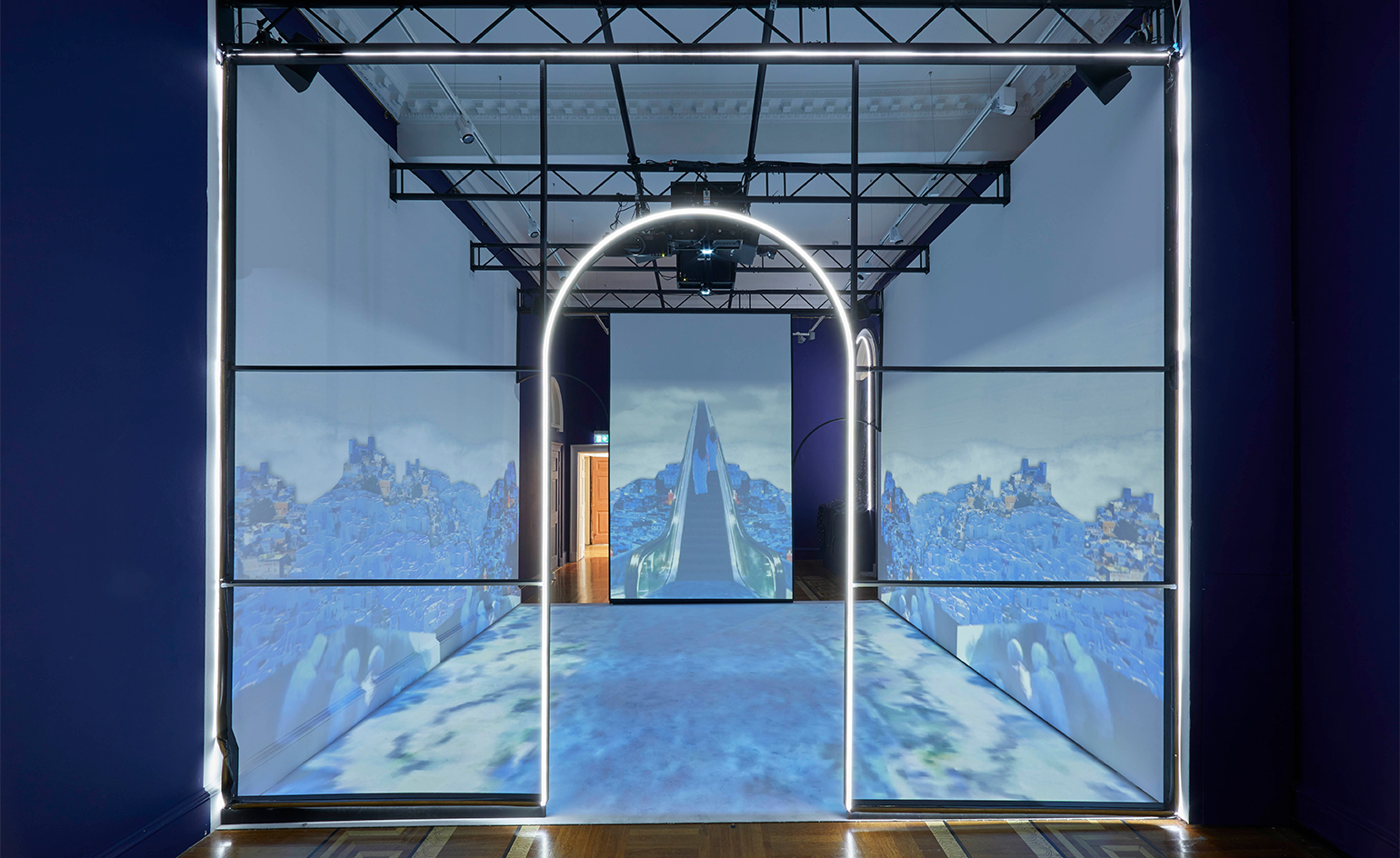
State of Indigo
Country: India
Curator: Priya Khanchandani
Visitors can step into India’s indigo universe with a series of films exploring the production line of the colour’s dye. Framed within a colonial style structure, the films on repeat include shots of Jodhpur, the Rajasthani city of indigo-hued houses. At the centre of the installation, an escalator that leads to the sky has individuals dressed in indigo overalls and saris on each step appearing as a reflection of the monotony of the process used to generate the unique pigment. The entire show is an ode to the hardworking nature of the republic’s design industry, in particular the natural techniques and meticulous labour
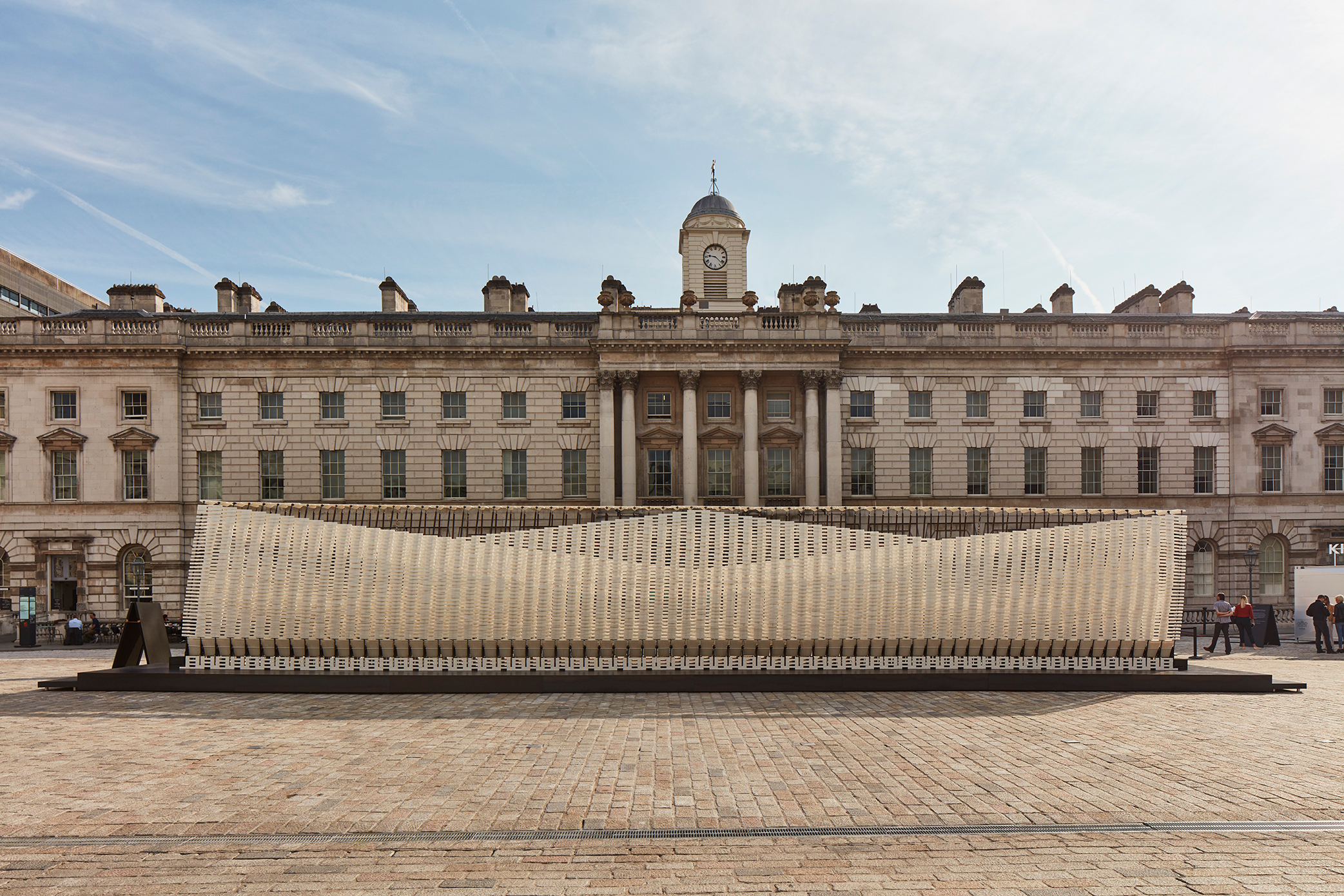
ANIPAKOI
Country: Greece
Designer: Studio INI led by Nassia Inglessis, Lead Designer and Engineer with team E. Brial, M. Vordonarakis, L. Walker, N. L’ Huiller, A. Yioti and with Neiheiser Argyros, C. Hornzee-Jones, Elliott Wood Partnership Ltd.
Somerset House-based Studio INI launches a kinetic installation in the courtyard that reacts to movement. Exploring ideas of disobedience that date back to Ancient Greece, the responsive work expands and contracts as an individual walks through, acting as a gateway to their emotions or ‘a physical megaphone.'
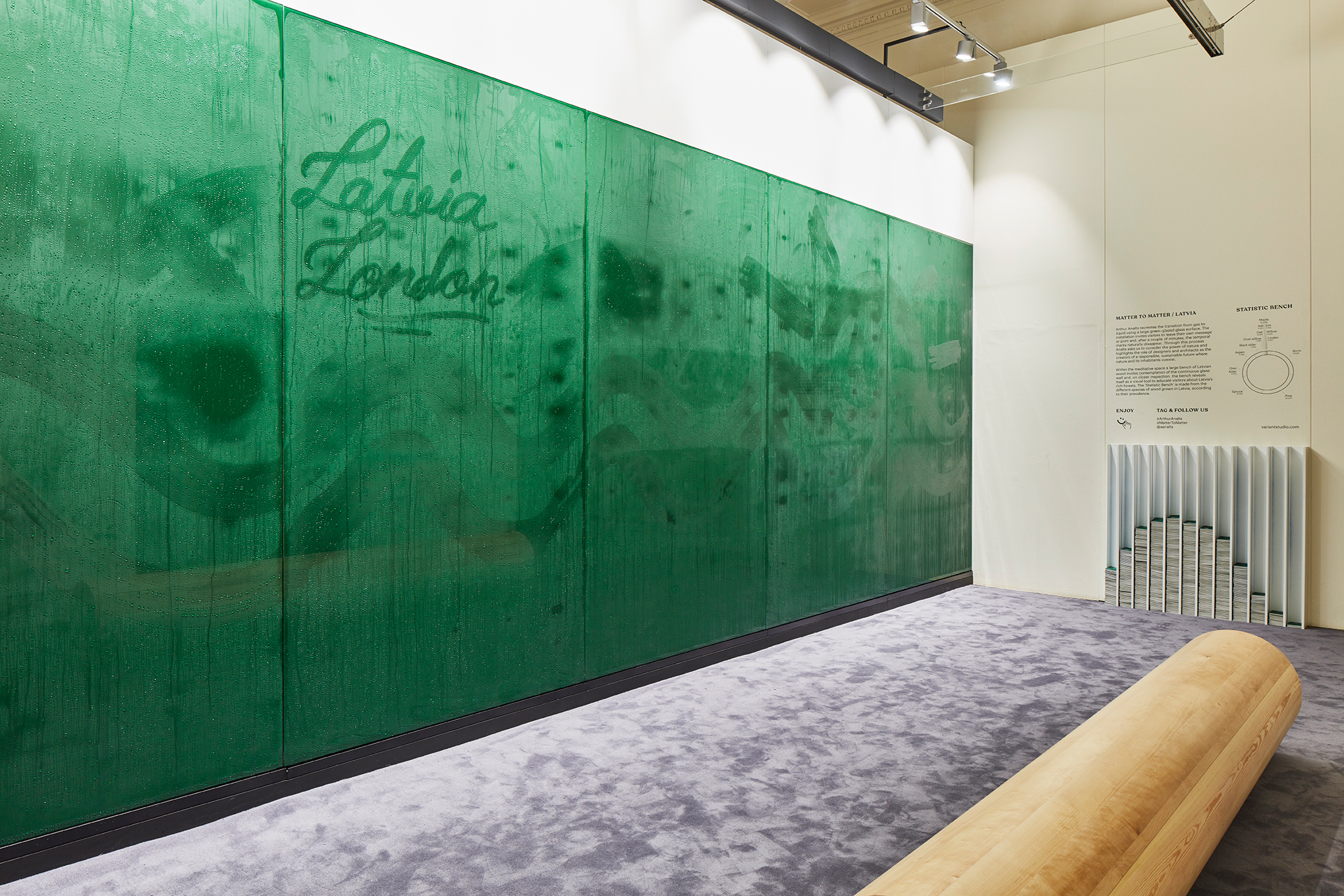
Matter to Matter
Country: Latvia
Designer: Arthur Analts (Variant Studio)
The Latvian participation embraces the country’s harmony between nature and design, and the development of technology in the 21st century. A glass condensation wall reflecting the humidity of the country’s capital of Riga allows visitors to write messages as a form of meditation. The wall is paired with a floor made from Latvian bark and a bench from birch that references the country's forestry.
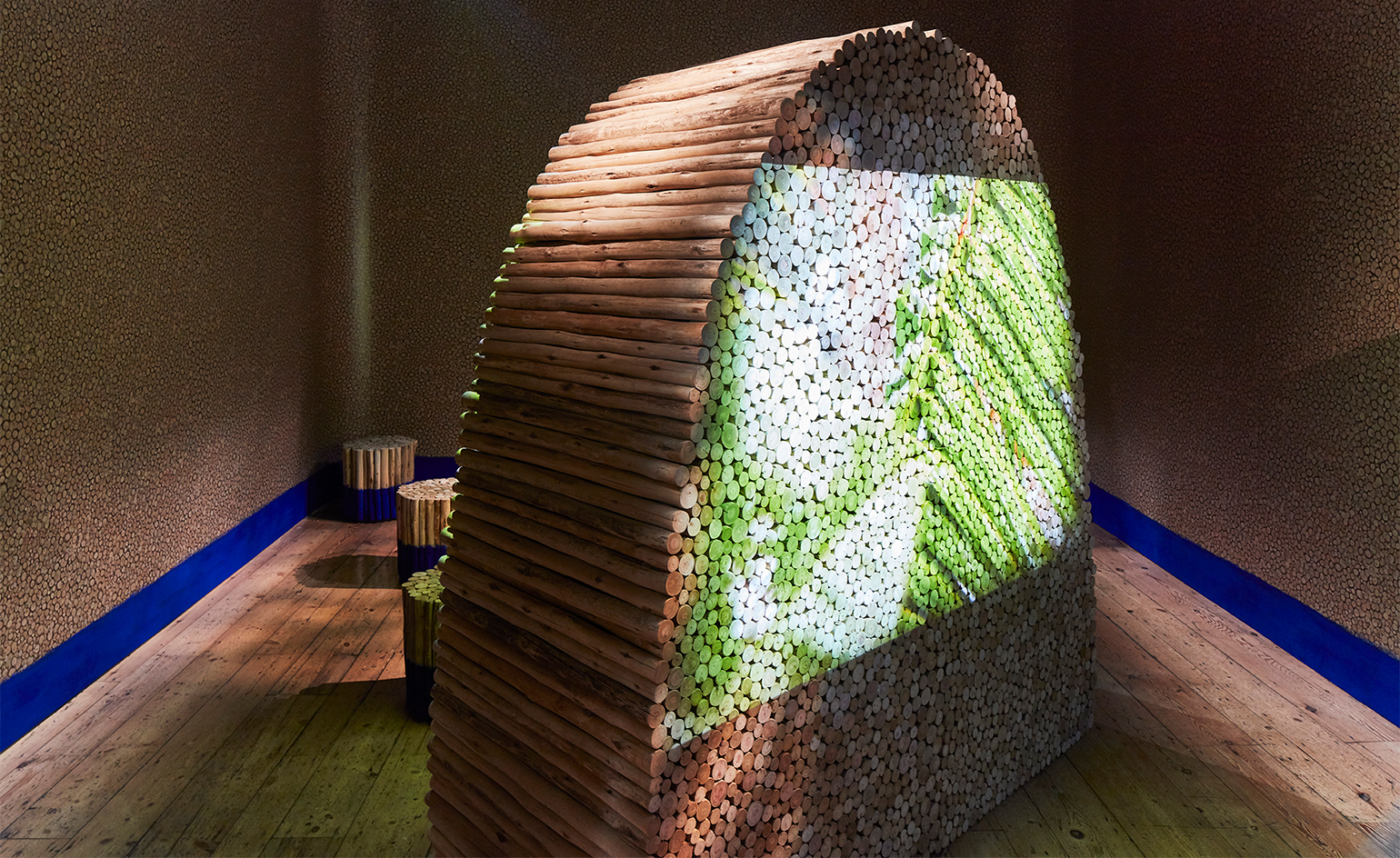
Desmatamento
Country: Brazil
Designer: David Elia
Offering a taster of the breathtaking beauty of the Amazon rainforest is Elia’s organic installation. The project addresses the issue of deforestation in the country and depicts the ecosystem with Elia’s Desmatamento chairs (2013), symbolising tree trunks found in the Mata Atlântica rainforest. Standing out is a blue pigment that signifies the conservation mark used by forest wardens to indicate trees that are to be saved, giving guests an insight into the sustainable steps the country are taking.
Wallpaper* Newsletter
Receive our daily digest of inspiration, escapism and design stories from around the world direct to your inbox.
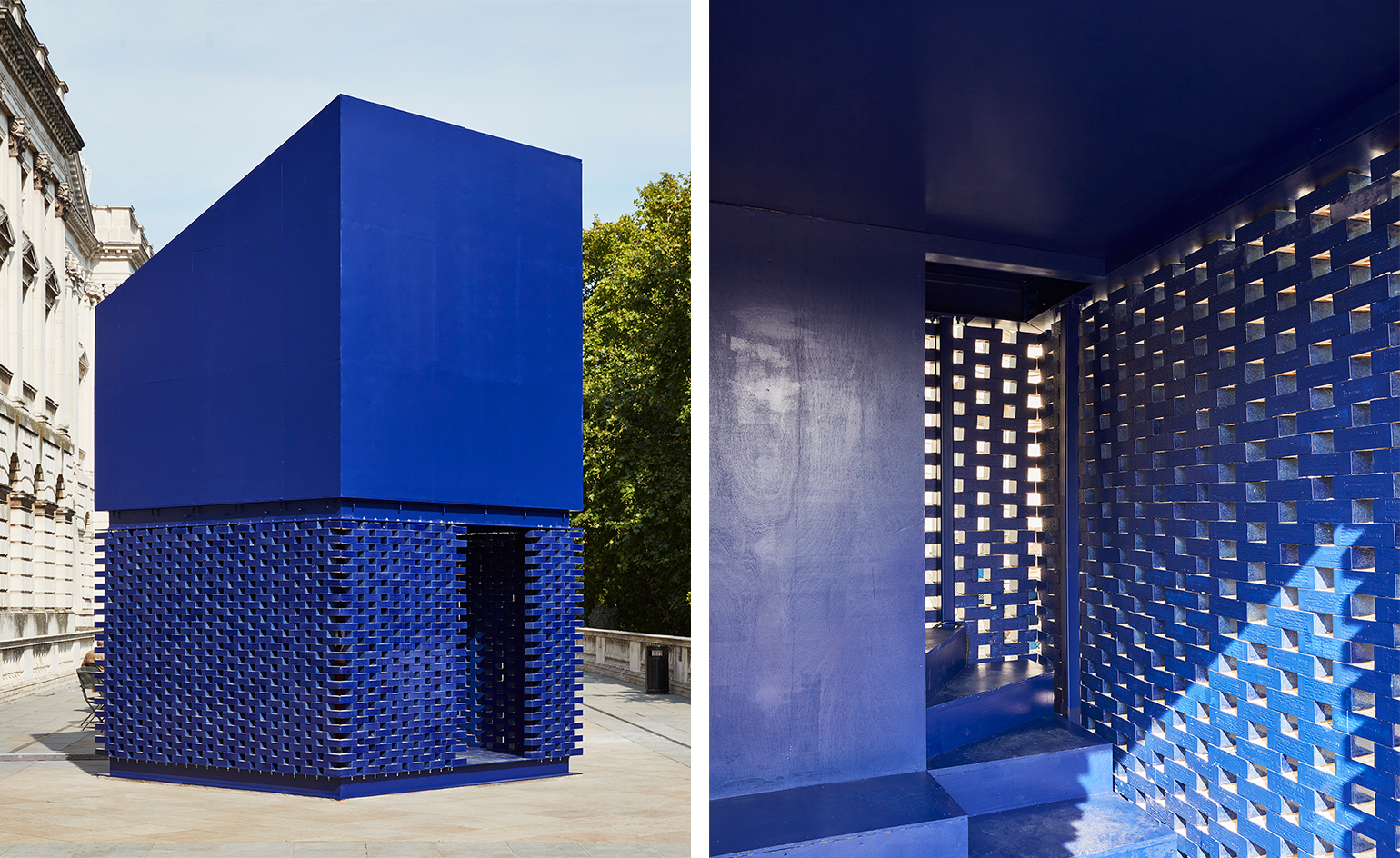
The Silent Room
Country: Lebanon
Designer: Nathalie Harb in collaboration with BÜF and 21dB
This year’s Lebanese contribution explores the effect of noise pollution on our emotional state. By creating a room insulated from noise, they are offering guests an experience that is becoming more of a life luxury: silence. The structure lives on the Embankment terrace of Somerset House and acts as an area to repose and connect with thoughts.

Shpeel
City: Dundee
Designer: Biome Collective
The Scottish city is fast approaching the opening of its Kengo Kuma-designed V&A Museum, and their biennale pavilion aims to be just as impactful. The installation investigates whether video games can help to start young people talk about their mental health. Shpeel invites individuals to share their emotions via gaming techniques and 360-degree sound and animation. The technology then produces an avatar that imitates these feelings, giving people an alternative communicative therapy to words
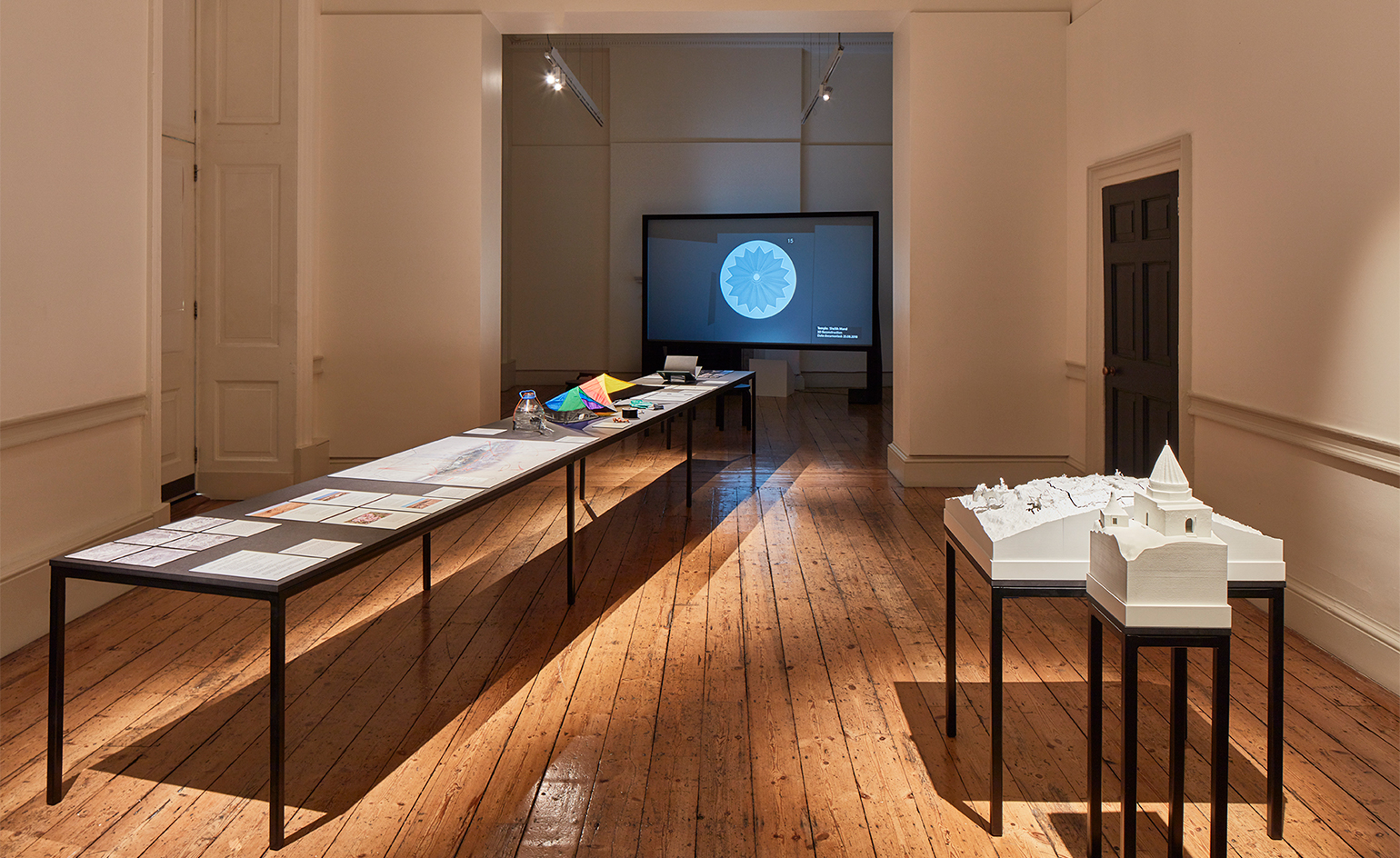
Maps of Defiance
Country: UK
Designer: Forensic Architecture
Maps of Defiance uses Forensic Architecture’s investigative software to present 3D models of land destroyed by terrorist organisation Daesh (Islamic State). The thought-provoking display is a result of the collective’s work with individuals of the Sinjar area of Iraq who have documented evidence of destruction and genocide; the exhibition is an intriguing view of how design can inform investigation.
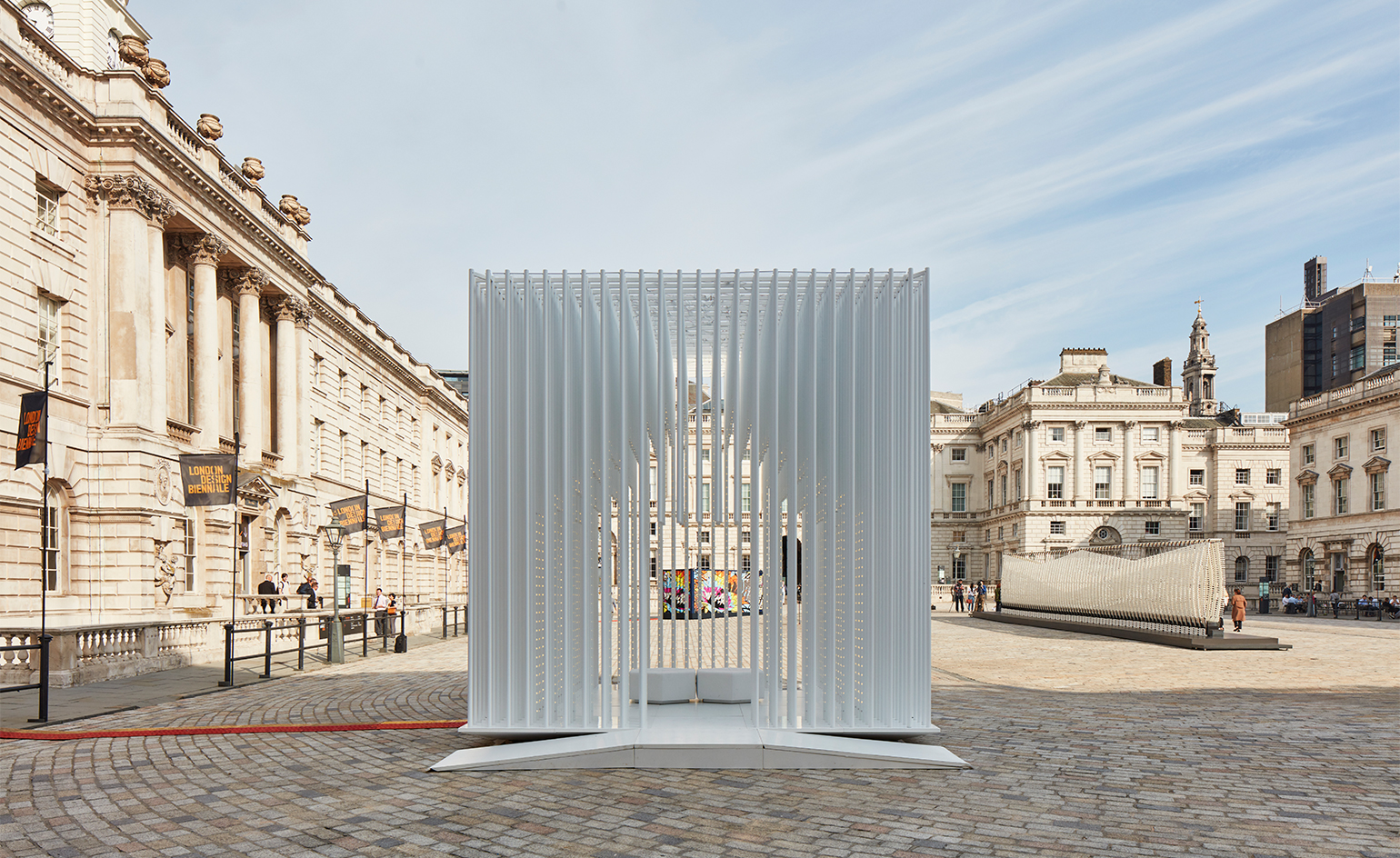
housEmotion
Country: Turkey
Designer: Tabanlıoğlu Architects
The Istanbul-based practice are questioning humans’ emotional connection to the home with a white pavilion. Originally created for the Interni ‘House In Motion’ exhibition at Salone del Mobile this year, the structure is developed using white rods to build a cubic shape with gaps that makes the ‘home’ appear transient. Inside, a comforting environment is created for visitors to relax, and at night, the exterior will light up to become even more alluring.
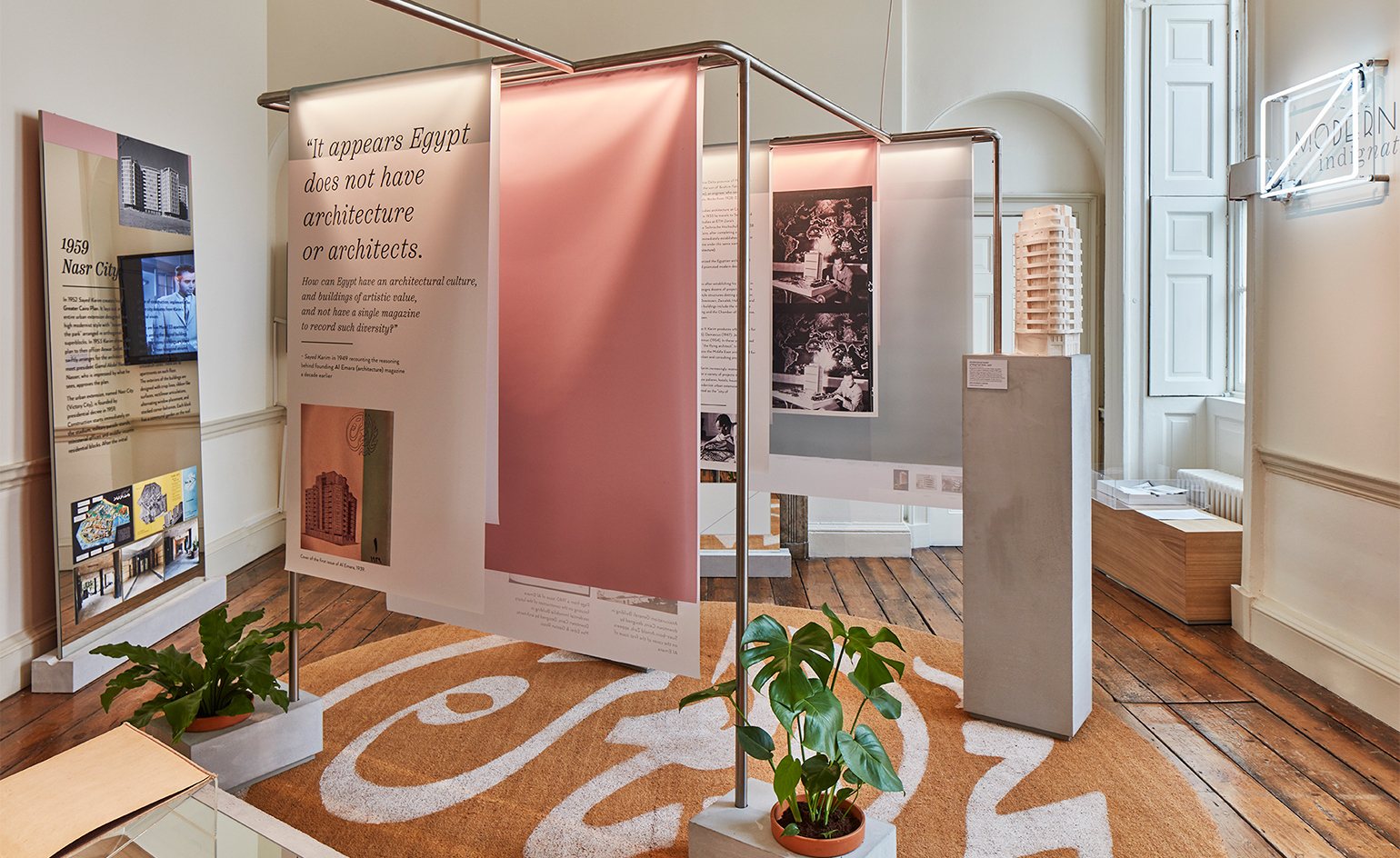
Modernist Indignation
Country: Eygpt
Curator: Mohamed Elshahed
Egypt’s entry sees the editors of Al Emara, the first Arabic-language design magazine (1939-1959), recreate the lost culture of the country, and its modernism monuments. Using the magazine’s archival content and an accompanying video of the house of architect Sayed Karim who founded Al Emara, they educate visitors with a celebration of Egypt’s modernist past. The installation is winner of the London Design Biennale 2018 Medal, awarded to the most outstanding overall contribution.
Sujata Burman is a writer and editor based in London, specialising in design and culture. She was Digital Design Editor at Wallpaper* before moving to her current role of Head of Content at London Design Festival and London Design Biennale where she is expanding the content offering of the showcases. Over the past decade, Sujata has written for global design and culture publications, and has been a speaker, moderator and judge for institutions and brands including RIBA, D&AD, Design Museum and Design Miami/. In 2019, she co-authored her first book, An Opinionated Guide to London Architecture, published by Hoxton Mini Press, which was driven by her aim to make the fields of design and architecture accessible to wider audiences.
-
 A Xingfa cement factory’s reimagining breathes new life into an abandoned industrial site
A Xingfa cement factory’s reimagining breathes new life into an abandoned industrial siteWe tour the Xingfa cement factory in China, where a redesign by landscape specialist SWA Group completely transforms an old industrial site into a lush park
By Daven Wu
-
 Put these emerging artists on your radar
Put these emerging artists on your radarThis crop of six new talents is poised to shake up the art world. Get to know them now
By Tianna Williams
-
 Dining at Pyrá feels like a Mediterranean kiss on both cheeks
Dining at Pyrá feels like a Mediterranean kiss on both cheeksDesigned by House of Dré, this Lonsdale Road addition dishes up an enticing fusion of Greek and Spanish cooking
By Sofia de la Cruz